A Rationale for the Trustworthiness of the Bible
By Dr. Andrew Corbett, January 15th 2023
Nearly everything we do is built on trust. When we eat we trust that we will not be poisoned by the cook. When we go for a walk we trust that other walkers will not bump us out of their way. When someone tells us something we trust that they are telling us the truth. In fact, there is hardly anything we do in our everyday lives that does not involve trust. While we generally trust those we have come to know, we readily trust some people whom we do not know if they are people possessing appropriate authority such as a policeman, or a medical doctor or an airline pilot. The right authority invites and engenders trust. Christians trust the Bible because it derives from the highest authority – God. In fact, Christians have good reasons (a rationale) for believing that the Bible is divinely inspired and the only infallible and authoritative written Word of God.
The Bible is not the only ‘book’ that God has given mankind. Christians believe that God has given two ‘books’ to mankind – (i) the written, authoritative Word of God, and (ii) the ‘book of nature’ – and that by either, a person may come to know the Creator. But as Article 2 of the Belgic Confession (1559) states, it is only the Bible which is authoritative and reveals the means by which a person can be saved:
We know him by two means: first, by the creation, preservation and government of the universe; which is before our eyes as a most elegant book, wherein all creatures, great and small, are as so many characters leading us to contemplate the invisible things of God, namely, His power and divinity, as the apostle Paul saith, Romans 1:20. All which things are sufficient to convince men, and leave them without excuse. Secondly, He makes Himself more clearly and fully known to us by His holy and divine Word, that is to say, as far as is necessary for us to know in this life, to His glory and our salvation.
The Bible’s Composition
Christians believe that the Bible was composed as a result of God superintending certain people, whom He at times:
- commanded to write His words (Exod. 17:14); or,
- directed them to record certain historic accounts from their perspective (Num. 33:2); or,
- guided them to record their prayers and devotional reflections (such as Ps. 55); or,
- had them document their verbalised worship of God which could be sung by others (such as Ps. 9:2); or,
- write letters to address errors and wrong practices among certain believers (such as Paul’s epistles to churches); or,
- write down certain visions they may have received from the Lord (such as Daniel 10:8ff; Rev. 1:11ff); or,
- used editors and compilers to produce and preserve parts of His Word (such as First and Second Kings). The Bible itself reveals that king Hezekiah’s scribes had access to some of king Solomon’s proverbs which they much later compiled together: “These also are proverbs of Solomon which the men of Hezekiah king of Judah copied” (Prov. 25:1). It also believed that the five books comprising the Psalms, which was compiled as a single volume only after the Jews return from their Babylonian captivity, was superintended by Ezra – who probably contributed two “editor’s psalms” as part of its one hundred fifty psalms (Psalm 1 and 119).
The Bible’s Divine Inspiration
“Holy Scripture, being God’s own Word, written by men prepared and superintended by His Spirit, is of infallible divine authority in all matters upon which it touches: it is to be believed, as God’s instruction, in all that it affirms, obeyed, as God’s command, in all that it requires; embraced, as God’s pledge, in all that it promises”
(The Chicago Statement on Biblical Inerrancy, Shorter Statement article 2).
The Bible was composed by God’s superintending its composition. Thiessen (1983) describes this divine inspiration of the Scriptures as, “The Holy Spirit so guided and superintended the writers of the sacred text, making use of their own unique personalities, that they wrote all that he wanted them to write without excess or error”, but Thiessen goes on to state, “Inspiration is inexplicable…we do not know exactly how the power of the Spirit operate[d]” (65).
Having noted that the Spirit’s inspiration of Scripture included God directly revealing His revelation to some whom He then commanded to write it down (stated in Rev. 1:11; 14:13; 19:9), we have also noted that God directed, led, guided, and moved (2 Pet. 1:21) certain others to write their part of His Word to mankind. This was done by His Holy Spirit “breathing” upon these writers. “All Scripture is breathed out by God and profitable for teaching, for reproof, for correction, and for training in righteousness, that the man of God may be complete, equipped for every good work” (2 Tim. 3:16-17). It therefore appears that some of those used by God to write His Word were aware that this would be result. “The vision of the evenings and the mornings that has been told is true, but seal up the vision, for it refers to many days from now…But you, Daniel, shut up the words and seal the book, until the time of the end. Many shall run to and fro, and knowledge shall increase” (Dan. 8:26; 12:4). While others may not have been aware of this. “To the rest I say (I, not the Lord) that if any brother has a wife who is an unbeliever, and she consents to live with him, he should not divorce her” (1 Cor. 7:12).
The mystery of how God inspired His Word extends to biblical writers even sharing their lack of knowledge of certain events and the Holy Spirit ensuring that this inability to recall was recorded accurately and honestly. For example, when the Apostle states,“I did baptize also the household of Stephanas. Beyond that, I do not know whether I baptized anyone else” (1 Cor. 1:16).
At other times, it is even the same author who was not aware that he was writing what the Spirit was inspiring, yet what he wrote came from the omniscient mind of God! “Now the Spirit expressly says that in later times some will depart from the faith by devoting themselves to deceitful spirits and teachings of demons, through the insincerity of liars whose consciences are seared, who forbid marriage and require abstinence from foods that God created to be received with thanksgiving by those who believe and know the truth” (1 Tim. 4:1-3).
The Bible’s Infallibility
Christians do not consider that the Bible was divinely mechanically dictated to its writers (unlike Muslims who claim this about their Qur’an). Rather, the Bible’s propositions and intended meaning was divinely inspired and infallible (incapable of being wrong or making an error) in a way that it is not entirely dependent upon a precise series of words. “The Bible is divine in its ultimate origin and theological content but human in its mode of expression or literary form” (Bloesch 1994, 38). This feature of the Bible’s divine inspiration enables it to be translated into any language from its original source languages (Hebrew, Aramaic, and Koine Greek) and still be infallible.
Translators work with original language manuscripts (MSS) produced by textual critics who have compared the known ancient manuscripts (often consisting of MSS fragments) to ascertain where copyists may have made errors (often consisting of scribal spelling mistakes or inclusions of a margin note into the text). Textual critics also incorporate new discoveries of even more reliable ancient MSS into their ‘reconstructed’ MSS (which usually includes their ‘apparatus’ which provides their sources and reasoning for selecting certain renderings). Because textual critics assemble their most reliable original language MSS from diverse sources (through a process of accepting and/or rejecting certain ancient variants), some question whether the claim to biblical infallibility is sustainable. This is one of the reasons why Bloesch (1994) feels that infallibility needs to understood as the truthfulness of the Bible’s propositions not necessarily its words: “We must not read into the biblical testimony a conception of truth that is tied to the epistemology of a naive realism in which words directly present what they signify” (34). When the The International Council on Biblical Inerrancy (ICBI) met in 1978 to affirm the Bible’s infallibility, they also avoided any reference to the need for correspondence to the precise wording of the original autographs:
Being wholly and verbally God-given, Scripture is without error or fault in all its teaching, no less in what it states about God’s acts in creation, about the events of world history, and about its own literary origins under God, than in its witness to God’s saving grace in individual lives.
(The Chicago Statement on Biblical Inerrancy, Shorter Statement, Article 4)
The three hundred signatories to the Statement affirmed the distinguishing definitions of the terms infallible and inerrant as:
Holy Scripture, as the inspired Word of God witnessing authoritatively to Jesus Christ, may properly be called infallible and inerrant. These negative terms have a special value, for they explicitly safeguard crucial positive truths. Infallible signifies the quality of neither misleading nor being misled and so safeguards in categorical terms the truth that Holy Scripture is a sure, safe, and reliable rule and guide in all matters. Similarly, inerrant signifies the quality of being free from all falsehood or mistake and so safeguards the truth that Holy Scripture is entirely true and trustworthy in all its assertions.
(The Chicago Statement on Biblical Inerrancy, Exposition.)
As our scientific knowledge of the natural world increases, and confirmation of historic events described in the Bible based on archaeological discoveries including discoveries of Ancient Near East (ANE) writings (sometimes recorded on earthenware pottery and tablets) have silenced the criticisms of the Bible’s reliability from yesteryear (Metaxas 2021). For example, the Bible’s scientific claims – such as the creation of the world out of nothing, now referred to scientifically as the Big Bang, (Ross 2018, 25) was once mocked by critics such as Sir Fred Hoyle (professor of astronomy, Cambridge University) prior to the mid-twentieth century before Edwin Hubble’s discovery of “red shift” was confirmed that the universe must have indeed had a beginning (Graetzer 2020, 26).
The Bible’s infallibility is also frequently challenged by those responding to faulty interpretations of the Scriptures, rather than what the Bible actually teaches. For example, as science professor, Daniel Graetzer points out, there are things assumed by some Christians which are not stated in the Bible – such as the age of the universe, or the age of our planet, or the date of when homo sapiens appeared on earth (Graetzer 2020, 34). This is why it is important to understand the principles of hermeneutics – the art and science of interpreting literature – which accommodates how we understand poetry, metaphors, similes, and hyperboles. For example, no one believes that Jesus was claiming He had door-frame hinges just because He said He was a “door”! “So Jesus again said to them, “Truly, truly, I say to you, I am the door of the sheep” (John 10:7).
The Bible is Authoritative
Bruce (1988) notes that the New Testament Gospels and Epistles were recognised very early (second century) as authoritative “because they contained the apostolic tradition which came from the Saviour Jesus” and, together with the Mosaic law, were recognised as Scripture for Christians (149). The earliest complete list of the twenty-seven books of the New Testament was noted by Athanasius, bishop of Alexandria, in AD 367, “who listed exactly the twenty-seven books which traditionally make up the New Testament in catholic and orthodox Christianity, without making any distinction of status among them” (208-209).
The Bible is authoritative because it claims to be the Word of God. “This God—His way is perfect; the word of the LORD proves true; He is a shield for all those who take refuge in Him” (Ps. 18:30). The prophets whom God used to write His Word specifically describe these moments of divine inspiration with the expression, “Then the word of the Lord came to me” (refer to: Jer. 42:7; 43:8; Ezek. 1:3; 3:16; 6:1; 7:1; 11:14; 12:1;13:1; 14:2). Jesus described the record of these divinely inspired messages as “the word of God” (Matt. 15:6) and referred to it as “Scripture” (‘the writings’) and declared that “Scripture cannot be broken” (John 10:35). Jesus also stated that the “Scripture must be fulfilled” in Him (Luke 22:37; John 13:18; Acts 1:16).
In the New Testament epistles we have internal references to the teaching of the apostles recorded in the Bible as Scripture which the writer of Second Peter states, “Our beloved brother Paul also wrote to you according to the wisdom given him, as he does in all his letters when he speaks in them of these matters. There are some things in them that are hard to understand, which the ignorant and unstable twist to their own destruction, as they do the other Scriptures” (2 Pet. 3:15b-16).
Within the sixty-six books of Scriptures we have a unified and coherent revelation from God about His identity as the Creator, the Law-giver, the Redeemer, the Saviour, and the Final Judge. Its sixty-six books tell one story – God’s plan of redemption and conquest over and ultimate vanquishing of evil. Within the Scripture is the revelation of how to be reconciled to God by having our sins forgiven through Christ. It is the Scriptures which assure us that we have one mediator between us and God the Father – Jesus the Christ (1 Tim. 2:5; Heb. 9:15; 12:24) through whom we can directly appeal. It is within the Scriptures that we find the commands of God for how we are to live, conduct our lives, order our affairs, treat others, and prioritise our worship of God. Thus, we are not permitted to just be “hearers” of God’s Word, we are to accept its authority and be compliant with its commands and imperatives (Rom. 2:13; 1 Tim. 4:16; James 1:22-23) – because it is the Word of God.
Wayne Grudem unambiguously explains the unique authority of Scripture as:
The New Testament writings contain the final, authoritative, and sufficient interpretation of Christ’s work of redemption…Thus, once the writings of the New Testament apostles and their authorized companions are completed, we have in written form the final record of everything that God wants us to know about the life, death, and resurrection of Christ, and its meaning for the lives of believers for all time…The authority of Scripture means that all the words of Scripture are God’s words in such a way that to disbelieve or disobey any word of Scripture is to disbelieve or disobey God. (Grudem 2005, 64, 73)
REFERENCE LIST
Bloesch, Donald G. 1994. Holy Scripture. Revelation, Inspiration, and Interpretation. Downers Grove, IL: InterVarsity Press.
Bruce, F. F. 1988. The Canon of Scripture. Downers Grove, IL: InterVarsity Press.
Graetzer, Daniel G. 2020. Studies in Human Biology. Independent-study Textbook. Springfield, MO: Global University.
Grudem, Wayne. 2005 (1994). Systematic Theology. An introduction to Biblical Doctrine. Grand Rapids, MI: Inter-Varsity Press.
Metaxas, Eric. 2021. Is Archaeology Proving the Bible? Newsweek Online. Accessed 4th January 2023. https://www.newsweek.com/archaeology-proving-bible-opinion-1634339
Ross, Hugh N. 2018. The Creator and the Cosmos. How the Latest Scientific Discoveries Reveal God. Covina, CA: Reasons To Believe.
The Chicago Statement on Biblical Inerrancy. 1978. http://www.bible-researcher.com/chicago1.html
Thiessen, Henry Clarence. 1983 (1949). Lectures in Systematic Theology. Grand Rapids, MI: William B. Eerdmans.
2 Comments
Submit a Comment
-
Sale!

5 Things We Need To Do To Break Our Church’s 200 Barrier, Premium Audio
Original price was: $1.75.$0.95Current price is: $0.95. -
Sale!

A Morning With Izaak Walton – The Compleat Man, Premium Audio
Original price was: $1.75.$1.25Current price is: $1.25. -
Sale!
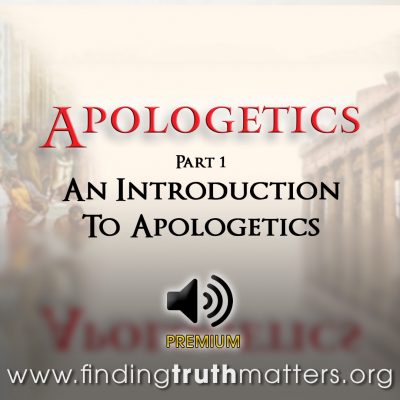
Apologetics Part 1 – Introduction To Apologetics, Premium Audio
Original price was: $1.75.$0.95Current price is: $0.95. -
Sale!
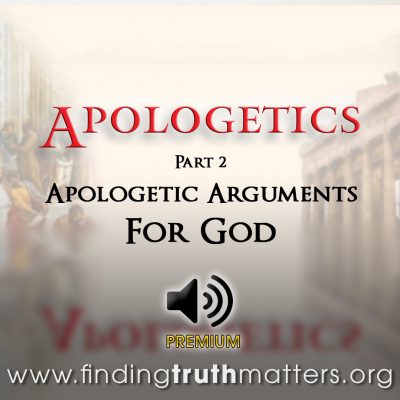
Apologetics Part 2 – The Apologetic Arguments For God, Premium Audio
Original price was: $1.75.$0.95Current price is: $0.95. -
Sale!
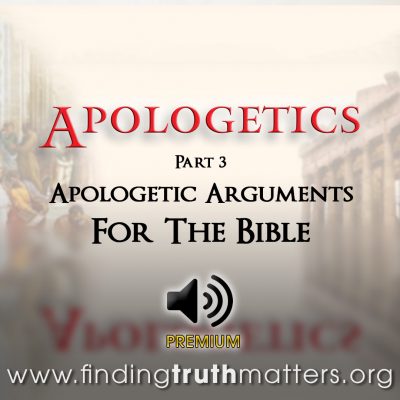
Apologetics Part 3 – The Apologetic Arguments For The Bible, Premium Audio
Original price was: $1.75.$0.95Current price is: $0.95. -
Sale!
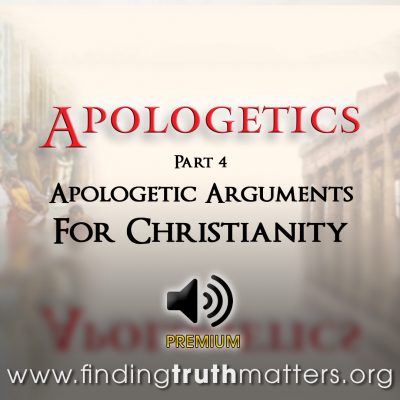
Apologetics Part 4 – The Apologetic Arguments For Christianity, Premium Audio
Original price was: $1.75.$0.95Current price is: $0.95.







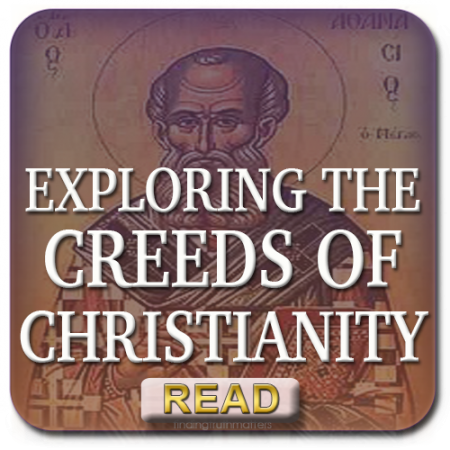


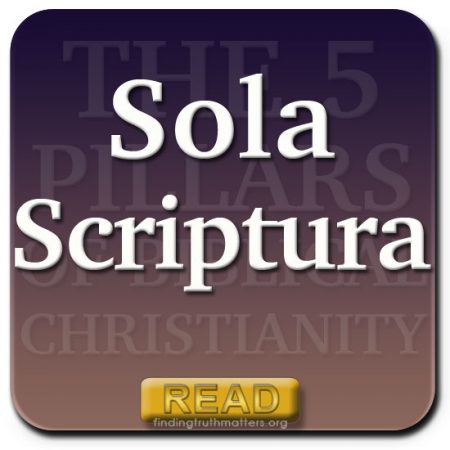




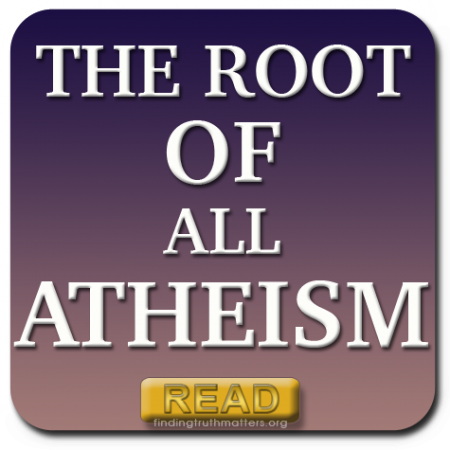
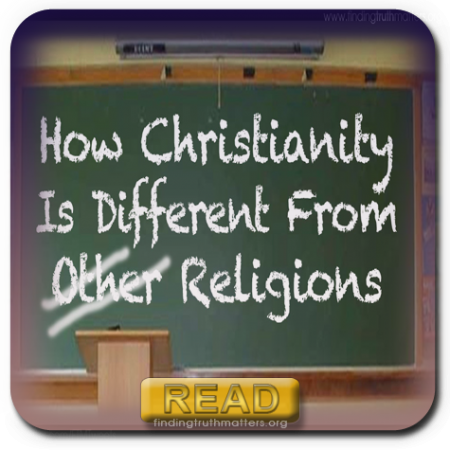









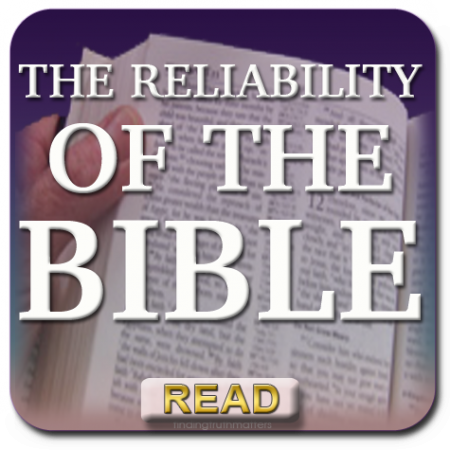


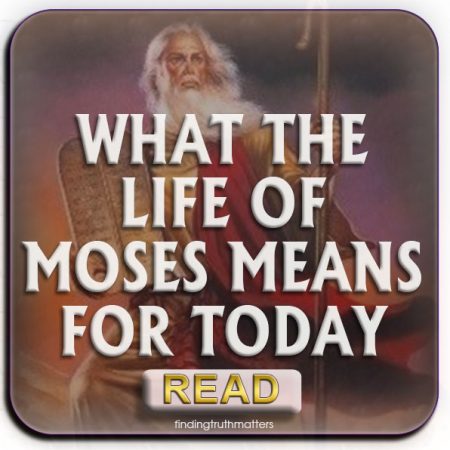




I agree the Bible can be 100% trusted to give us the truth. As for others, these last few years has given me great doubt that anyone can be trusted. The health professionals lied and pushed a vaccine on us that does more harm than good. Our politicians shut us down with mandates that some profesionals (the Barrington Decleration) said will not work. Even my own minister said that anyone talked of an old earth or the big bang were liars. So we have to make up our own minds to what the truth is.
John Bontius
John, many of us have been quite jaded by the influence of big Pharma on our politicians and the audacious measures that ensued which often did more harm than good. Comments like the ones you have shared from your minister are disappointing and reflect his own misunderstanding of the relationship between the Bible and verifiable science.